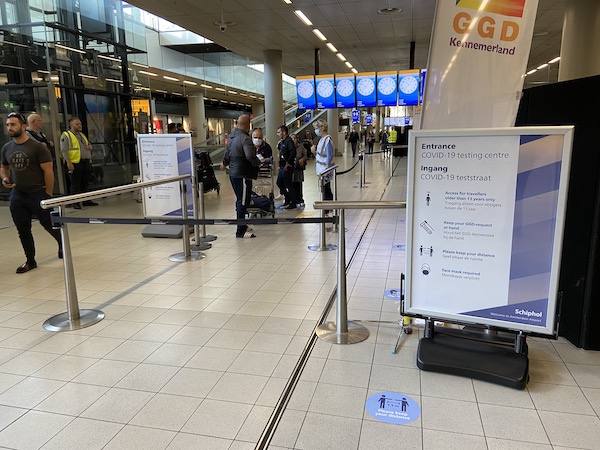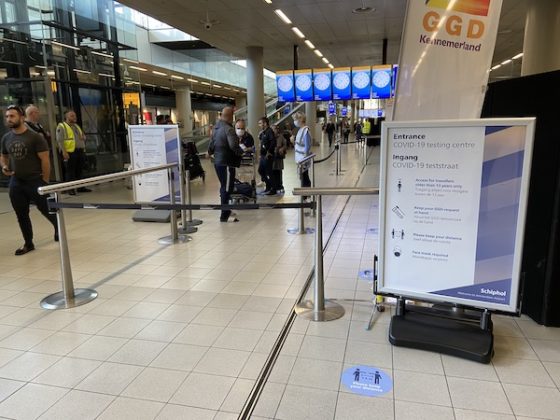Health minister signs deal with German lab in a bid to end coronavirus test backlog


The health ministry has signed a deal with a large Dutch German consortium of laboratories in an effort to boost coronavirus testing capacity, health minister Hugo de Jonge has told MPs in a briefing.
The agreement will allow a further 10,000 tests a day to be carried up in September, and this will eventually rise to allow a potential 44,000 extra tests, the minister said. Officials are also looking into the option of establishing a major new lab in the Netherlands itself to absorb some of the work.
At the same time, capacity for tracking and tracing the contacts of people who test positive for coronavirus is also to be stepped up considerably in the coming period, De Jonge said.
Amsterdam and Rotterdam both recently sounded the alarm, saying they did not have enough people to trace all coronavirus contacts.
Regional health boards are now carrying out some 500 trace projects a day, but this will be scaled up to 1,000 a day by September and 1,500 by the end of the month. The Red Cross and local emergency service staff will also be involved, De Jonge said.
Pressure
On Thursday it emerged that the Netherlands’ coronavirus testing capacity is under considerable pressure because of a shortage of equipment and other supplies at labs. Some 30,000 tests a day can currently be carried out in the Netherlands, but demand is increasingly sharply.
And on Friday, the local health board organisation said that waiting lists for a test now exceed two days in 51 of the 98 test centres nationwide. Some 25,000 people a day are currently trying to schedule a test appointment.
Since June 1, everyone with coronavirus symptoms has been able to apply for a test. In the next stage, the minister wants to expand the programme to people without symptoms but with high risk of developing or contracting the virus.
This would include travellers from red or orange risk areas, people identified in the tracking system, healthcare workers and people working in education.
The public health institute RIVM says the Netherlands must be able to double its daily test capacity to 70,000 by the end of the year.
Thank you for donating to DutchNews.nl.
We could not provide the Dutch News service, and keep it free of charge, without the generous support of our readers. Your donations allow us to report on issues you tell us matter, and provide you with a summary of the most important Dutch news each day.
Make a donation